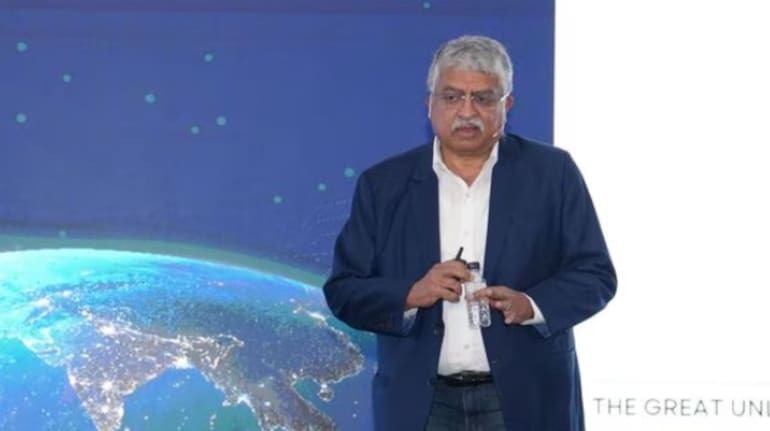
Co-Founder of Infosys and primary designer of Aadhaar Nandan Nilekani has expressed his belief that India will have 1 million new businesses by the year 2035, and that most of these startups will come from outside the established metropolitan cities.
Currently, India is home to 150,000 startups, but Nilekani believes that this number has the potential to increase by 20% each year for the next ten years, surpassing his predictions for India’s economic growth.
While attending the Arkam Annual Meet 2025, Nilekani was quoted saying, “We don’t know what it means if a million companies are all roaming around trying to fix problems [...] and interestingly, more and more startups are happening outside the metros, and they are solving different issues.”
Nilekani noted that nearly half of India’s startups are geared towards solving local problems in smaller towns and cities. He also mentioned that companies like Apnamart, a smaller city DMart copycat, are paving the way for lesser known retail chains.
While discussing how to enhance India’s economy to $8 trillion by the year 2035, Nilekani stated, “The guy who made money, I happily added cheques for the guys who want to start companies. So the whole thing is a virtuous cycle of capital and entrepreneurship,” claiming that the current state of capital funding and entrepreneurship is cyclical in nature.
He is particularly keen on the full-scale implementation of artificial intelligence (AI), monetisation of land through tokenization, supoprting businesses outside the metropolitan areas, providing 10 million MSMEs better access to technology, markets, and credit, formalisation of the employment market, simplification of laws, and decriminalization of compliance provisions, as well as minimizing bureaucratic red tape.
As Nilekani, who is often referred to as India’s Chief Technology Officer, put it, the most important pillar is the emerging Indian workforce, “which is 3 million strong Gen Z who are digital natives and AI users”.
The drive toward an 8 trillion dollar economy
He additionally outlined the four “formalisation, entrepreneurship, capital, and technology” which he believes are crucial in getting the Indian economy to 8 trillion dollars by the year 2035.
India should fully implement artificial intelligence (AI) with the intention of helping over a billion people. For that, Indian languages, MSMEs, agriculture, health care, and education should be the majors’ focus.
He noted that artificial intelligence has many uses, but focusing on these sectors will yield the fastest increase in growth.
Nilekani pointed out that the economy will benefit most from the increased investment spending, especially in capital A, after maximization of the AI usage.
He pointed out, again, his position regarding land monetisation through the use of tokenization and internet-centric infrastructure, saying it will generate activity in the capital market and financing of infrastructure.
Read More: Maruti Alto K10 Review: The No-Nonsense Urban Hero That Gets the Basics Perfect
--Advertisement--

 Share
Share



